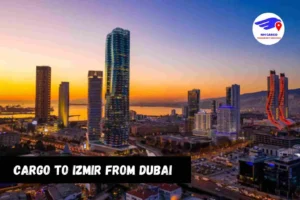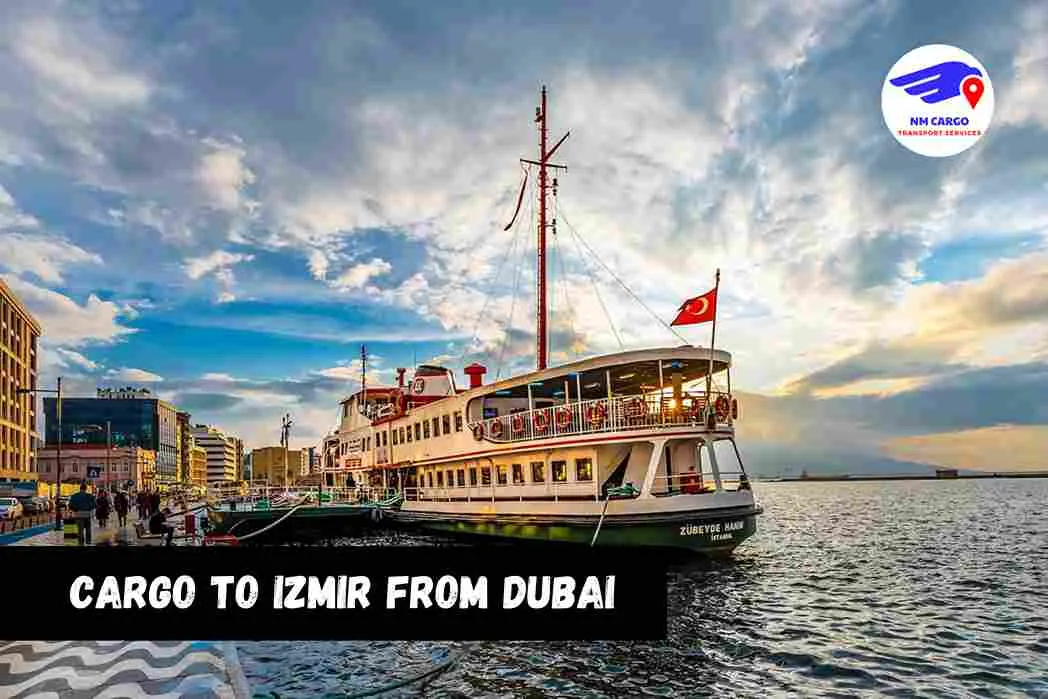Izmir, Turkey’s third-largest city and a prominent port on the Aegean Sea, is a vital hub for trade and commerce. The city’s strategic location makes it a key destination for international cargo services. For businesses and individuals looking to transport goods from Dubai, one of the world’s leading logistics centers, to Izmir, understanding the process and available options is crucial. This article provides an in-depth guide to shipping cargo from Dubai to Izmir, covering everything from shipping methods to customs regulations.
Shipping Methods
Air Freight
Air freight is the fastest method for shipping cargo from Dubai to Izmir. It is ideal for high-value or time-sensitive goods. Dubai International Airport (DXB) offers frequent flights to Adnan Menderes Airport (ADB) in Izmir, ensuring efficient and reliable delivery.
Advantages:
- Speed: Typically delivers within 1-3 days.
- Reliability: Minimal risk of damage and loss.
Considerations:
- Cost: Generally higher compared to sea freight.
- Size and Weight Limits: Limited by aircraft capacity.
Sea Freight
Sea freight is a cost-effective option for larger volumes of cargo. The journey from Dubai’s Jebel Ali Port to Izmir’s Alsancak Port can take longer, but it is suitable for bulky or non-urgent shipments.
Advantages:
- Cost-Effective: Lower rates for large volumes.
- Capacity: Suitable for large and heavy cargo.
Considerations:
- Transit Time: Typically takes 10-20 days.
- Risk of Delays: Subject to port congestion and weather conditions.
Land Freight
Although less common for direct routes from Dubai to Izmir, land freight can be an option if combined with sea freight. This method involves transporting goods by truck from Dubai to a port in Turkey and then continuing by road to Izmir.
Managing your finances efficiently is easier with tools like the PayPlus card. To ensure you always have control over your spending, it’s essential to keep track of your card balance. With the PayPlus card balance check online, you can conveniently monitor your funds anytime, anywhere. This feature saves you time and effort, eliminating the need to visit physical locations or make phone inquiries. By logging into the secure online portal, you can view your transaction history, check available funds, and stay updated on your account in just a few clicks.

Advantages:
- Flexibility: Can be combined with other modes of transport.
- Direct Delivery: Potentially lower handling costs.
Considerations:
- Complex Logistics: Requires careful coordination between different transport modes.
- Time: Longer transit time due to combined transport.
Customs and Documentation
Navigating customs regulations is a critical aspect of international shipping. To ensure smooth processing of cargo from Dubai to Izmir, proper documentation and adherence to regulations are essential.
Required Documentation
- Commercial Invoice: Provides details of the transaction, including the value of goods.
- Packing List: Lists the contents of the shipment and their packaging.
- Bill of Lading (B/L): Serves as a receipt for cargo and a contract of carriage.
- Certificate of Origin: Certifies the origin of the goods, required for tariff and trade purposes.
- Import License (if applicable): Depending on the nature of the cargo, specific licenses may be required.
Customs Regulations
- Tariffs and Duties: Goods imported into Turkey are subject to tariffs and VAT. The rates vary based on the type of product and its classification.
- Inspection: Customs authorities may inspect shipments to verify compliance with regulations and ensure there are no prohibited items.
Choosing a Freight Forwarder
Selecting a reliable freight forwarder is crucial for ensuring the efficient handling of cargo from Dubai to Izmir. Freight forwarders manage the logistics of shipping, including documentation, customs clearance, and transport arrangements.
Shipping cargo from Dubai to Izmir involves careful planning and consideration of various factors, including the choice of shipping method, customs regulations, and documentation. By understanding these elements and working with a reliable freight forwarder, you can ensure a smooth and efficient shipping process. Whether you opt for air freight for speed, sea freight for cost-effectiveness, or a combination of transport modes, being well-informed will help you manage your logistics effectively.




